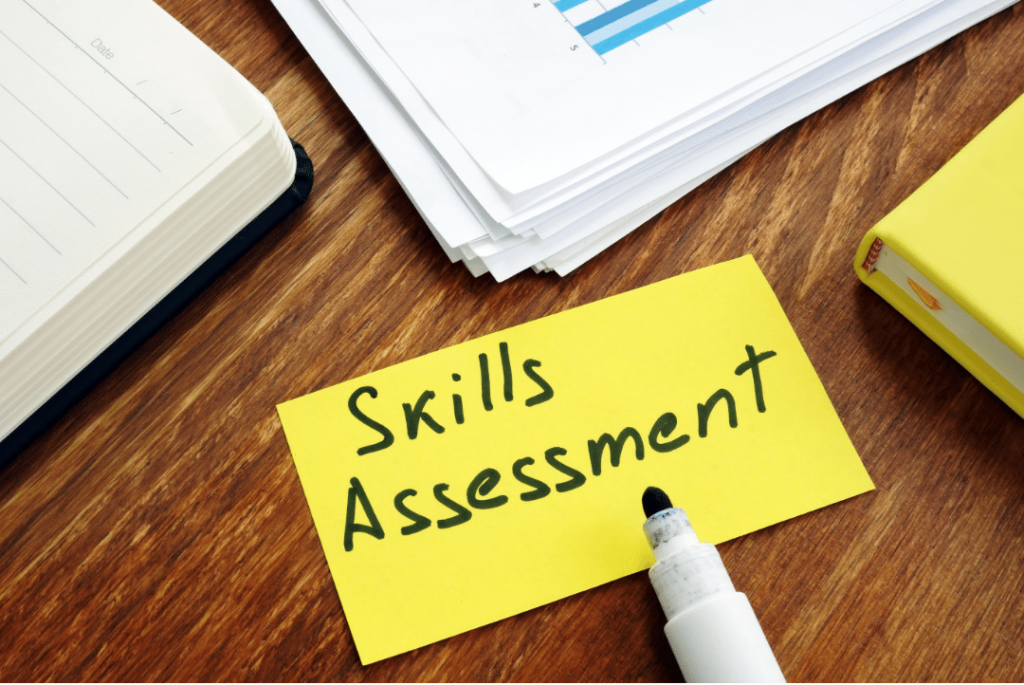Career Trends: December 19, 2022
Curated by the Knowledge Team of ICS Career GPS

Content Credit:
- Article by Taylor Sullivan, published on dice.com. Original article link.
It is imperative for the workforce to echo the pace of technological advancement, which is shifting at a lightning speed. Ensuring the workforce has the skills to meet the demands of modern-day work is a matter that is only increasing in urgency. As the adoption of automation and artificial intelligence rises, it’s estimated that up to fourteen per cent of the global workforce – as many as 375 million workers – will need to switch jobs or acquire new skills by 2030.
As this pressure builds up, we need to prepare our workforce for the future. We cannot forget that addressing the gaps in skills in today’s workforce is a critical issue. Results of a McKinsey Global Survey revealed that 87 per cent of executives said they are experiencing skill gaps in the workforce right now or expect them within a few short years—and less than half of the leaders surveyed knew how they were going to address this problem.
Critical to Reskilling Effectively: High-Quality Assessments
Business leaders are beginning to build out reskilling programmes within their organisations, they will be most successful if they start from a data-informed, unbiased assessment of where their workforce stands. Without that, leaders are making blind investments in learning and development programmes that may not adequately address skills gaps or the needs of the organisation.
The data derived from implementing quality skills assessments within reskilling efforts can help leaders build a strategy that can make the most of the talent already in place.
Here are 7 steps to implement a reskilling initiative:
1. Identifying the critical technical skills:
- This can be done through collaboration with job experts, workforce reviews, environmental scanning, and monitoring of industry trends and forecasts to identify the tech skills that are most likely to be essential for addressing emergent and future challenges and business needs.
- This means going deeper into strategic workforce planning.
- You need a detailed view not only of the core activities that mission-critical roles will begin undertaking but also of which skills these groups will need.
- Map out which skill pools will disproportionately impact your future business model and drive progress.
2. Identify career paths that would be unlocked given reskilling:
- Mapping how skills overlap and are distinct across organisational roles can reveal an exciting web of interrelated roles.
- What are the paths of least resistance into mission-critical roles?
- That is, could a minor lift in reskilling unlock new and different internal talent pipelines for these key roles? How can building new or deeper skills change what options are available to your employees? Which skills should be developed to unlock the greatest number of paths into mission-critical roles?
3. Establish a baseline:
- By building and administering assessments of the skills you have identified as being essential for mobilisation and future-proofing your workforce.
- You are able to understand your workforce’s current skills and build a repository of data and skill profiles to use as a benchmark for designing.
- Later, evaluating the success of mobilisation efforts.
4. Don’t neglect your non-tech talent pipeline:
- Regardless of roles, it’s essential to evaluate the test-taker’s ability to grasp the types of topics and concepts that are essential for effective performance in roles.
- Such as software development and cybersecurity.
- Measuring things like technical aptitude, learning readiness, and trainability can help you discover hidden reservoirs of tech potential among your non-tech workforce.
5. Identify and prioritise gaps:
- Evaluate the extent to which the critical technical skills your future-ready workforce needs are reflected in the current skill profiles of your tech and non-tech workforce.
- Consider which roles will be most central to operational resilience and organisational performance over time, and prioritise addressing skill gaps affecting these roles first.
6. Mobilise by investing in a tailored reskilling journey:
- Invest in tailored reskilling journeys to close critical skill gaps.
- Reskill employees to activate career paths of least resistance into mission-critical roles.
- These initiatives can take many forms: formal training programs, job shadowing, mentoring, coaching, self-guided study, etc.
7. Re-evaluate your talent using assessments to gauge development:
- After reskilling initiatives, re-evaluate your talent using assessments to gauge learning and development of particular skills.
- Update your skill profiles and data repository to evaluate progress from baseline.
- Which initiatives were successful? Which fell short? Which gaps were bridged? Which were widened? Then, considering this information, iterate and repeat this process.
Talent mobilisation is an evergreen strategy for responding to industry changes and disruption in real-time. Situating mobilisation efforts within a culture of learning and continuous self-improvement will help ensure these efforts are successful.
…
Have you checked out yesterday’s blog yet?
‘Proper fit’: How to find out if you are in the right workplace?
(Disclaimer: The opinions expressed in the article mentioned above are those of the author(s). They do not purport to reflect the opinions or views of ICS Career GPS or its staff.)




One Reply to “How Skills Assessments Matter In Tech?”